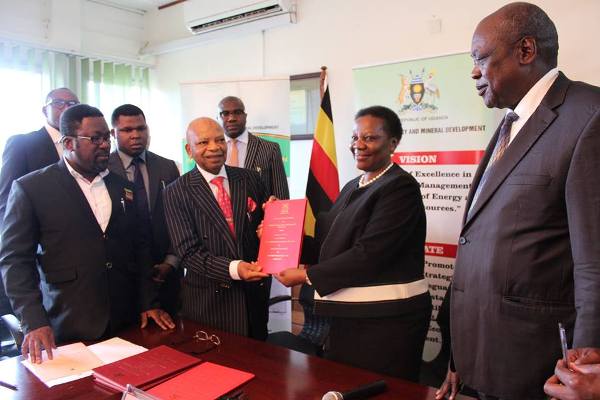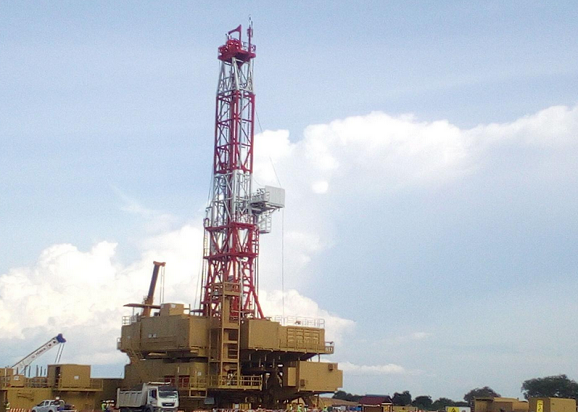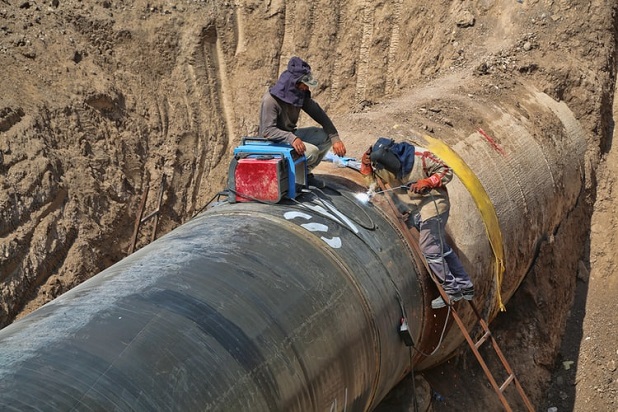The price of Uganda’s oil and gas products on the local market will be determined by the international prices of similar products, and not the conditions in Uganda, according to industry leaders.
These are mainly the products that will be produced at the Ugandan refinery that is due to be completed in 2025, including petrol, diesel, kerosene and light petroleum gas.
This contrasts with what the general public thinks about the difference between importation of petroleum products and locally producing oil, as regard to pricing.
So the cost or price will be no different from what Ugandans are currently paying for the products on the market.
The Uganda Refinery Holding Company Ltd General Manager Michael Mugerwa says this is aimed at giving investor confidence about the oil and gas investment environment in Uganda.
Uganda is planning to construct a refinery that will initially refine 30,000 barrels of crude oil per day, and this capacity is planned to be stepped up later to 60,000 barrels a day.
The bulk of the crude will be exported by pipeline from Hoima through Tanzania. Speaking at the Tanzania Uganda Oil and Gas Symposium in Dar-es-Salaam, Dr Mugerwa, who represented the Uganda National Oil Company UNOC, says the rate of return on investment in the refinery ranges between 17 and 22 percent.
He adds that the refined products will also be priced according to how the producers of the crude will price the raw material.
Currently, prices of refined products are at a record high with petrol going for 4,600 shillings a litre, while diesel now costs around 4,100 shillings a litre in Kampala while upcountry the prices are higher in some places.
This is an increase of almost 900 shillings a litre in less than five months, from the time the cost of petrol matched the cost of a dollar.
The dollar has remained at less than 3,600 shillings.
The high fuel prices, according to the government and the distributors is due to the rising prices of crude on the international market, which have gone up by more than 100 percent since economies around the world started reopening after Covid-19 induced lockdowns.
For Uganda, there was also an increase of 100 shillings a litre to in Excise Duty tax to 1, 450 shillings per litre of petrol and 1, 130 per litre of diesel.
The refinery is one of the eight projects that are planned in the oil and gas sector, while others include the Kingfisher and Tilenga crude projects, the crude export pipeline, and the storage facilities in Kampala and in Jinja.
Mugerwa says that the Ugandan oil will be produced to international standards, specifically “Euro 5” like what is currently imported.
On the financing of the projects, Mugerwa said the west is increasing pressure on the global market to stop financing fossil energy production that includes oil and gas, as well as coal production saying they are bad for the climate change war.
He said this was made even worse by the deliberations at Cop 26 where financing dominated the debate on the migration to renewable clean energy production.
Mugerwa said this calls for African solutions to African problems.
Patrick Mweheire, the Regional Chief Executive, Stanbic Bank East Africa says the international community, particularly the west is being unfair to Africa because worse projects are being funded in countries of other continents.
Standard Bank Group through Stanbic, is the leading transaction advisor for the project financing and is also charged with mobilizing global funding for the projects.
Up to 30 billion dollars will be needed for investment in Tanzania and Uganda’s oil and gas industries but Mweheire says that the banks in the region can only raise up to 1 billion dollars.
He says that prudence and innovation on use of the limited resources in in the region will be vital.
Borrowing from the experience of the electricity sector, cheap financing will be vital for the final cost of the product because the investors have to recoup their investment, especially since the return is already predicted.
–URN





